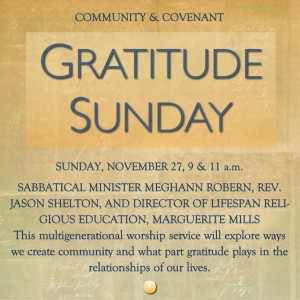Watch and listen to the homily on Facebook
I have a question. How many of you currently go to school? What do you do at school? You learn new things, right? Things you didn’t know before.
Now, in order for me to be one of your ministers here, at this church, I had to go to a special school called a seminary. And I was very lucky, because I lived close to a seminary that dedicated itself to lots of different religions in addition to the Methodists that had started it. They partnered with the school that trains Jewish rabbis and cantors, and the school that trains Buddhist leaders. They even helped create a school to train Muslim leaders! Even better, these relationships between the schools meant that there was diversity among the students in all the classes. But, they didn’t stop there. Learning new things is so important to my seminary, that they require every single person who is training to be a minister, like me, to take classes in religions that aren’t ours. I couldn’t finish my program unless I learned about something totally new to me.
Now, because of my great seminary, I had a lot of options to choose from. Judaism, Buddhism, Islam, Hinduism, and more… and I chose Sikhism. Does anyone here already know something about Sikhs?
One of the reasons I wanted to study Sikhism is because I believed they truly practice radical hospitality, something which we UUs try really hard to do. Did you know that every Sikh temple has rooms that anyone can stay in, at no charge, for up to three nights? It doesn’t matter why you need a place to stay — they will give you a bed to sleep in and a roof over your head. They also feed everyone after every prayer service. Even the Golden Temple, the holiest gurdwara of Sikhs all over the world, in India, serves thousands after prayer three times a day, entirely on volunteer effort. They form their religious community around radical hospitality of food and shelter for all.
And what about the story of Ukko and the woman who didn’t want to share her bread? The more she kept for herself over what she needed, the smaller she got. Now, we all know here that being small in body isn’t necessarily bad — small people can have great big hearts. But the smaller the loaf she made for Ukko… the smaller her heart was. And even when she began frantically giving more and more of the bread away so she could be herself again — it was important that she not give everything away. She still kept what she needed to feed herself and her family. Community doesn’t mean giving until you have nothing for yourself. Community is about giving and sharing to sustain everyone, including yourself.
Then Marguerite told us the story of the people seeking a new home. They asked to share space, and they were initially told they would take up too much room, that they would overflow the bowl and cause resources to be lost. But their leader decided to offer a different way of looking at joining this community. Instead of being a burden, instead of causing trouble… what if their presence instead made something new? Instead of draining the community of its abundance, they would add to it, and change it for the better. And so they were welcomed, and the community was made better by its hospitality to people who were different, but were still in need.
Like the sugar in the milk, life is better with a little sweetness. This community, this congregation, strives to be something sweet in your life. Something else the Sikhs taught me is that the sweetness of your religious community should be matched with a sweetness on your tongue — they hand out little balls of sweet dough after prayers, before they head to the meal. It’s to remind that connection between your mind, body, and heart, that the sweetness of community comes from nourishing all parts of yourself. For there to be peace in the world, it must begin with peace in the heart.
So today, for our Bread Communion, we are offering you something sweet for your tongue to symbolize the sweetness of this community.
May it be so.
Share this post: